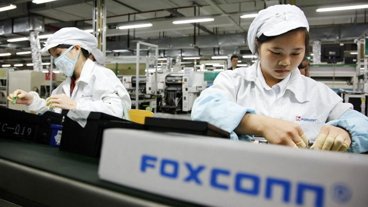Intel interested in building Apple's mobile A4, A5 chips: report
Intel currently makes the CPUs powering Apple's notebooks and desktops, but Apple has increasingly turned to ARM processors to power its iPods, Airport base stations, and iOS devices including the iPhone, iPad, and Apple TV.
Apple has also taken an increasing interest in designing its own ARM application processors, branding last year's chip the A4, and unveiling a new A5 in conjunction with the release of iPad 2. Both parts are built by Samsung from Apple's design, which incorporates licensed intellectual property from both ARM and Imagination Technologies.
Because the design is Apple's and does not belong to Samsung, Apple could team up with other chip fabricators to ensure a steady supply, to seek better pricing or improved production technologies, or simply to avoid doing business with Samsung, which is currently embroiled in legal disputes with Apple.
Apple had been rumored to be making plans with Taiwan Semiconductor Manufacturing Co. to produce the company's A5.
Those plans were said to be motivated by the competitive efforts Samsung is making to produce very similar products to Apple's iPhone 4, iPod touch, and iPad, the subject of Apple's side of its lawsuit against Samsung. Apple was also said to be interested in TSMC's leading yields in the manufacturing of 40 nanometer processors.
Intel A5?
In a new report by EE Times citing Gus Richard, an analyst with Piper Jaffray & Co., Intel is said to also be interested in producing Apple's mobile chips.
"Intel's manufacturing lead gives Apple an additional competitive advantage in these markets and distances it from Asian competitors that are knocking off its products,'' Richard said. ''Furthermore, it would also serve to weaken Samsung who is a significant competitive threat to both companies.''
Richard noted that "While it will take a few years for Apple to shift foundry suppliers, we believe Apple is shifting away from Samsung. We believe TSMC will start getting revenue from Apple in Q4 of this year. We believe the recent patent lawsuit between the two companies is further evidence to support our belief that Apple is moving its silicon needs elsewhere.''
A report from January indicated that Samsung was just beginning plans to increase application processor fabrication for Apple by a factor of four, dedicating a large proportion of the company's new $3.6 billion production facility in Austin, Texas, to building Apple's mobile processors.
Richard alluded to that deal and noted "we believe that Apple moving its foundry business away from Samsung is what has recently driven Samsung to reduce equipment orders, as it will likely repurpose this capacity [in Austin] for memory."
Apple's CPU business
Apple shifted its desktop Mac CPUs to standard architectures from Intel beginning in 2005 after the PowerPC alliance it helped to create ran out of steam, leaving Apple stranded as the only mainstream platform using the architecture.
Apple's chief executive Steve Jobs, whose earlier NeXT platform had shifted to Intel in the early 90s, was said to have wanted to shift the Mac to Intel five years earlier.
Apple had also helped to originate the mobile use of ARM processors in the early 90s with the Newton Message Pad, which was discontinued in 1998. Three years later, Apple began using ARM chips again in the iconic iPod, and is now one of the largest consumers of ARM processors, and one of few companies large enough to benefit from developing its own custom versions of ARM application processors.
Intel briefly ran its own ARM business named XScale before selling it off to Marvell at a huge loss in 2006. It then embarked on efforts to produce an x86-compatible mobile chip now named Atom.
Apple was rumored to be interested in using Atom (then called Silverthorne) to power what would become the iPad, but the company chose to go with its own ARM designs after finding Intel's mobile chips to be too power hungry. Intel's inability to catch ARM in mobile applications also prompted Microsoft to announce a shift in Windows 8 to support other chip architectures, including ARM, for tablet products.
Being able to reenter the mobile chip market by simply partnering with Apple as a chip fabricator could provide a strong incentive to Intel to fight for the iPhone-maker's business, much the same way that Microsoft has worked to establish partnerships with Nokia and RIM to promote Bing search as a competitor to Google's services after its own Windows Phone 7 mobile platform failed in the marketplace.
 Daniel Eran Dilger
Daniel Eran Dilger














 Amber Neely
Amber Neely
 Thomas Sibilly
Thomas Sibilly
 AppleInsider Staff
AppleInsider Staff
 William Gallagher
William Gallagher
 Malcolm Owen
Malcolm Owen
 Christine McKee
Christine McKee










72 Comments
um, duh?
Not Duh. This is actually a big shift (if true) for intel. it would be a return to making arm chips which they dismissed for their own proprietary chips.
Not Duh. This is actually a big shift (if true) for intel. it would be a return to making arm chips which they dismissed for their own proprietary chips.
duh, meaning: of course intel is interested in building mobile processors for Apple.
Ahh money.... how it changes minds.
duh, meaning: of course intel is interested in building mobile processors for Apple.
But again not duh, because it means they have to do something they DISMISSED 10 or so years ago or so.